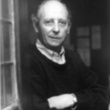The book of evidence
Description
More Details
9780375725234
9780307817129
Similar Series From Novelist
Similar Titles From NoveList
Similar Authors From NoveList
Published Reviews
Booklist Review
In an insidious voice, cultured killer Freddie Montgomery details the sordid events leading up to his brutal, seemingly motiveless murder of a scullery maid. Freddie is a failed scientist who, though married and a father, leads an aimless life island-hopping in the Caribbean. Spending most of his time drinking in low-life resort bars, he incurs a large gambling debt with a local mobster and is forced to leave his wife and child as ransom while he returns to his native Ireland. Moving in an alcoholic stupor, bitterly wrangling with his widowed mother, Freddie feebly attempts to extract money from his relatives. In a last pathetic effort to cover his debt, he steals a valuable painting and viciously beats an innocent bystander. An unreliable narrator (How much of this "confession" is really true?) who is filled with self-loathing, Freddie is a disturbing, haunting figure. Author Banville's formidable writing skills are everywhere evident in this revealing portrait of a killer's dark heart. --Joanne Wilkinson
Publisher's Weekly Review
Comparisons with Camus's The Stranger and Dostoyevski's Crime and Punishment are not lightly made, but spring irresistibly to mind after finishing Banville's dazzling novel, which was short-listed for Britain's Booker Award and won Ireland's very rich Guinness Peat Aviation Award, adjudicated by Graham Greene. Banville, who has written three previous books but is not widely known here, is literary editor of the Irish Times. His protagonist and first-person narrator is Frederick Montgomery, a former scientist who has taken to drifting aimlessly through life, keenly self-conscious, a brilliant observer of himself and his surroundings, but with no coherent moral center. In the course of a pathetically absurd robbery attempt--he is trying to steal a painting, with which he has become obsessed, from a neighbor of his mother--he brutally and pointlessly kills a maidservant. He tells his story as he sits in jail awaiting his trial, imagining it as a courtroom statement. But is his account--hallucinatory, spellbinding, full of the poetry and pity of life--true? In response to that question from a police inspector, the novel's last chilling line: ``All of it. None of it. Only the shame.'' Banville's style, which is spare yet richly eloquent, and his extraordinary psychological penetration, are what lift his novel to a level of comparison with the greatest writers of crime and guilt. It is difficult to imagine a reader who would not find The Book of Evidence both terrifying and moving. (Apr . ) (c) Copyright PWxyz, LLC. All rights reserved
Library Journal Review
Freddie Montgomery is a schizophrenic 38-year-old ex-scientist haunting dingy pubs who, nonetheless, ponders life and his illness via this superb novelized murder trial ``confession.'' After study in America, Freddie returns to Ireland to find that his disowning mother has sold what he believes is part of his inheritance from his late father, some paintings that include an old Dutch master of a woman he thinks regards him with caring, benevolent authority. As he steals it, he murders a maid who catches him in the act. His lawyer advises him to plead manslaughter to quash evidence. Instead, the brooding, contradictory Freddie writes the ``book of evidence'' that we read. How much of it is true, how much sick fancy? Freddie makes us think, too.-- Kenneth Mintz, formerly with Bayonne P.L., N.J. (c) Copyright 2010. Library Journals LLC, a wholly owned subsidiary of Media Source, Inc. No redistribution permitted.
Kirkus Book Review
Winner of Ireland's largest literary award for the best book of 1989, Banville's latest is an elegantly written, often darkly comic meditation upon evil and guilt--and a great imaginative leap beyond his previous efforts (Kepler, 1983, etc.). Frederick Charles St. John Vandveld Montgomery has returned to Ireland in a desperate search for money. Earlier, living with his wife on a Mediterranean island with no visible means of support, he blackmailed a drug-pusher into giving him a loan. When Frederick welshed on the debt, the man behind the pusher, Senor Aguirre, prevented the wife from leaving the island and threatened to kill her if Frederick didn't come up with the payment. Frederick, having come to Ireland, visits his mother in the countryside, where she is raising Connemara ponies, but there is no money to be had. Then Frederick kidnaps a young woman--a housemaid--in the course of a robbery and kills her (""It's not easy to wield a hammer in a motor car""). On the run, he falls in with a wise old family friend, Charlie French, who puts him up in his house unaware of the murder. Eventually, Frederick is spotted by a shopgirl and denounced to the police. While on remand awaiting trial, haunted by moral ambiguity, he writes this book of evidence, grappling with his life itself. (""Does the court realize, I wonder, what this confession is costing me?"") Frederick begins to see that Charlie's well-meaning placing of him in a sinecure was the beginning of his downfall: always taking the easy way out has left him defenseless against the temptations of the world. There are still those who would help him get off--Charlie supplies him with the best defense lawyer in Ireland--but Frederick struggles to find meaningful guilt for his awful deed. A novel of high moral seriousness, gracefully written--one that lingers on in the mind long after it is read. Copyright ©Kirkus Reviews, used with permission.
Library Journal Reviews
Freddie Montgomery is a schizophrenic 38-year-old ex-scientist haunting dingy pubs who, nonetheless, ponders life and his illness via this superb novelized murder trial ``confession.'' After study in America, Freddie returns to Ireland to find that his disowning mother has sold what he believes is part of his inheritance from his late father, some paintings that include an old Dutch master of a woman he thinks regards him with caring, benevolent authority. As he steals it, he murders a maid who catches him in the act. His lawyer advises him to plead manslaughter to quash evidence. Instead, the brooding, contradictory Freddie writes the ``book of evidence'' that we read. How much of it is true, how much sick fancy? Freddie makes us think, too.-- Kenneth Mintz, formerly with Bayonne P.L., N.J. Copyright 1990 Cahners Business Information.
Publishers Weekly Reviews
Comparisons with Camus's The Stranger and Dostoyevski's Crime and Punishment are not lightly made, but spring irresistibly to mind after finishing Banville's dazzling novel, which was short-listed for Britain's Booker Award and won Ireland's very rich Guinness Peat Aviation Award, adjudicated by Graham Greene. Banville, who has written three previous books but is not widely known here, is literary editor of the Irish Times. His protagonist and first-person narrator is Frederick Montgomery, a former scientist who has taken to drifting aimlessly through life, keenly self-conscious, a brilliant observer of himself and his surroundings, but with no coherent moral center. In the course of a pathetically absurd robbery attempt--he is trying to steal a painting, with which he has become obsessed, from a neighbor of his mother--he brutally and pointlessly kills a maidservant. He tells his story as he sits in jail awaiting his trial, imagining it as a courtroom statement. But is his account--hallucinatory, spellbinding, full of the poetry and pity of life--true? In response to that question from a police inspector, the novel's last chilling line: ``All of it. None of it. Only the shame.'' Banville's style, which is spare yet richly eloquent, and his extraordinary psychological penetration, are what lift his novel to a level of comparison with the greatest writers of crime and guilt. It is difficult to imagine a reader who would not find The Book of Evidence both terrifying and moving. (Apr . ) Copyright 1990 Cahners Business Information.


































